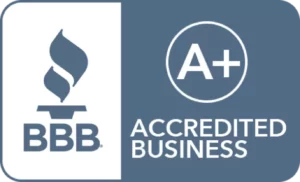The Internal Revenue Code does not describe what a Self-Directed IRA can invest in, only what it cannot invest in. Internal Revenue Code Sections 408 & 4975 prohibits disqualified persons from engaging in certain type of transactions. The purpose of these rules is to encourage the use of IRAs for accumulation of retirement savings and to prohibit those in control of IRAs from taking advantage of the tax benefits for their personal account. When it comes to using retirement funds to invest in a private investment funds, such as a hedge fund, it is important to be mindful of the IRS prohibited transaction rules under Internal Revenue Code Section 4975.
In general, the IRS has restricted certain transactions between the IRA and a “disqualified person”. The definition of a “disqualified person” (Internal Revenue Code Section 4975(e)(2)) extends into a variety of related party scenarios, but generally includes the IRA holder, any ancestors or lineal descendants of the IRA holder (i.e. parents, children, spouse, daughter-in-law, or son-in-law), and entities in which the IRA holder or a disqualified person holds a controlling or management interest. Furthermore, Internal Revenue Code Section 4975(c)(1)(D) and (E) outlines rules that relate to self-dealing or conflict of interest transactions that involves an investment that could directly or indirectly personally benefit a disqualified person. The self-dealing or conflict of interest prohibited transaction rules have the broadest application especially when it comes to hedge fund-type private investments funds.
A hedge fund is an alternative private investment vehicle available only to sophisticated investors, such as institutions and individuals with significant assets. In general, retirement funds are permitted to invest in hedge funds. The prohibited transactions rules tend to become more of an issue when the person using the IRA funds or any disqualified person related to the IRA owner has a personal interest or relationship with the hedge fund investment. In other words, an IRA can generally make an investment into a hedge fund in which neither the IRA holder nor any disqualified person has any personal ownership or relationship with. The issues begin to arise from an IRS prohibited transaction standpoint when the IRA owner wishes to use retirement funds to invest in a hedge fund where her or she or a disqualified person is either an owner, employee or, in some cases, has a professional relationship with the fund in question.
If structured correctly, there may be a way for one to use their retirement funds to invest in a hedge fund that one is personally involved in. The key is to make sure that the IRA investment into the private investments funds will not directly or indirectly, personally benefit the IRA owners, since that type of investment would likely trigger a prohibited transaction.
Generally, hedge funds are structured as limited partnerships or LLCs. In the case of a limited partnership, a general partner (“GP”) is created that tends to perform all the hedge fund management tasks. The GP generally owns a small percentage of the partnership. The investors are limited partners (“LP”) of the partnership. A typical fee structure for a hedge fund is the 2 and 20 model, which means the hedge fund manager will take a 2% management fee of all assets under management and then take 20% of the profits generated by the fund after the LP investors have received their money they invested back and, in some cases, a preferred return on the money invested is also returned to the investor.
A popular question is whether an individual who is a principal or in a management position with the hedge fund can use their retirement funds to invest in the fund. To begin with, the use of the retirement funds cannot be invested into the GP entity since that is the entity where the services are generally being performed on behalf of the hedge fund and where the management fee and carried interest are typically being directed as investing IRA funds into a company where the IRA holder has a personal ownership or is performing services as an employee would likely violate the IRS prohibited transaction rules. Therefore, the question then becomes can the IRA holder who has some personal ownership in the hedge fund use retirement funds to invest as an LP of the fund? The answer generally depends on the facts and circumstances involved in the transaction.
It is advisable to consult with a tax attorney or tax professional before using a Self-Directed IRA to invest in private investments funds, such as a hedge fund. Contact us @ 800.472.1043 for further assistance!











